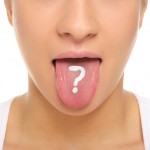Should you brush after each meal?
Your oral maintenance routine is based on the rules you were told taught growing up. Brush for two minutes. Floss once a day before brushing to get the plaque where a brush can reach it. Use mouthwash for fresh breathe. All of these are wonderful ways to keep you smile healthy. Another fairly common recommendation that most people clean their mouth by is the old adage “Brush after every meal.” Is this a dentist recommendation or just a long-imparted way for parents to keep their kiddos brushing?
The answer is both and neither. Since meal time is when the mouth is the most susceptible to plaque build-up it would make sense to brush following each time you ate. In an ideal world, this would be a great way to care for your mouth. Unfortunately, the busy lives most of us lead have reduced the recommendation down to twice a day, once in the morning and once in the evening. Let’s take a look at some hard facts on why brushing right after eating is a good idea.
What Mealtime Does to Your Mouth
You’ve just enjoyed your first meal. As you push away from the table, the microorganisms in your mouth have already gotten to work. Bacteria is absorbing sugars from food particles and creating plaque, a sticky biofilm that coats the teeth and gums. The process of producing plaque also generates an acidic environment in your mouth. Within a few short hours, you’re mouth has been completely overtaken with plaque. This is why brushing often is so important. Brushing and flossing break up the plaque formation process, as well as washes away the food particles, acid, and bacteria doing all that damage. Anytime you put anything in your mouth that can be converted into plaque – sports drinks, between meals, a quick, small treat, a glass of wine, a midnight snack – you restart that process.
Most people eat a meal every four or so hours, so brushing after each one would greatly interrupt the plaque process.
What happens when you don’t brush at all or less than the recommended twice daily? Tartar, micro-colonies of hardened plaque that can’t be brushed or flossed off, start to form within twenty-four hours. You miss a day, and your mouth is susceptible to swollen and bleeding gums known as gingivitis and tooth decay, along with bad breathe, reduced immune system, stained or yellow teeth, and a just plain dirty feeling mouth.
Many dentists, including some from the American Dental Association, discourage eating between meals to maintain a healthy oral environment, especially since most snacks are highly processed or contain sugars that speed up the plaque creative process. If you simply can’t handle the wait between meals, choose a snack with high fiber and water content to fight back against plaque and keep fresh breath. Apples and pears are exceptionally good fruit options and most vegetables fall into the category. The fiber helps scrub teeth surfaces to a lesser degree then brushing, and the water content of these foods neutralizes the acidic environment as well as stimulates saliva production in the mouth. Cheese also a great snack, as it reduces the acidic environment in the mouth, retarding the production of plaque.
A Debate about an Exception to the Brushing After Eating Rule
One question that often arises when talking about an oral cleansing routine is whether someone should brush as soon as they wake up or wait until after they eat breakfast. Even the professional dental community is split in this debate.
Those on the side of immediately brushing when you get out of bed argue that as you sleep, saliva production is decreased (especially if you snore) and this dry mouth environment ramps up plaque creation. By scrubbing your mouth first thing in the morning, you remove 6-9 hours of plaque accumulation before adding to it with breakfast.
The other side of this argument claims that even though some plaque forms when you sleep, if you brushed before bed, its fine to wait until you’ve eaten again (breakfast) to go after the plaque from this food. Those with this opinion feel that food is what starts the plaque process, so when it’s eaten should be when the bacteria and food feeding it should be removed.
Of course, no debate is black and white. Those with varying opinions from the two above say brush both before and after breakfast. Really, as long as your intentions are to keep your mouth healthy, how you go about it should be determined by your dentist and you. Whether that’s brushing after each meal, twice a day, or each time food or drink enter your mouth, you both can work together to determine your best at-home dental cleansing plan.



